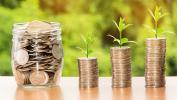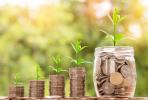LIFE Project: Guiding the integration of best practices in bio-waste recycling in Europe
- Type Project
- Status In progress
- Execution 2023 -2025
- Assigned Budget 1.664.600,00 €
- Scope Europeo
- Autonomous community Cataluña
- Main source of financing LIFE
- Project website Web del proyecto
The LIFE BIOBEST project aims to identify and validate current Best Practices (BP) and management tools throughout the biowaste management chain (from generation to treatment) that allow the production of quality compost and digestate and to establish a series of Key Performing Indicators (KPI) as a reference, based on the analysis of databases.
Among other types of waste, the EU Waste Framework Directive covers biodegradable garden and park waste; food and kitchen waste from households, restaurants, caterers, and retail premises; and waste from food processing plants. Local authorities in the EU generate between 118 and 138 million tonnes of bio-waste annually, representing around 34% of all municipal waste. There is significant potential to recycle such waste into valuable products, such as soil improvers and fertilizers, and to contribute to a more circular economy. The Waste Framework Directive sets targets for local authorities to collect bio-waste separately, recycle it, and prepare it for reuse: 55% by 2025, 60% by 2030, and 65% by 2035. As a result, since the end of 2023, all EU Member States have been obliged to collect bio-waste separately or ensure recycling at source, meaning that, by 2027, compost derived from mixed municipal waste will no longer count towards statutory recycling targets.
Despite these legal obligations, current collection systems vary widely across Europe, with significant variations in both recycling rates and the quality of the resulting compost and digestate. Defining a best-practice management framework for separate collection and recycling is essential to fully exploit the potential of bio-waste and support the circular economy roadmap proposed by the European Commission. This management framework should take into account local factors influencing bio-waste management, such as urban density, structure, and population.
The LIFE BIOBEST project aims to identify both the enabling conditions and barriers faced by local authorities in optimizing biowaste separation and recycling. The project team will design realistic practices and quality standards for biowaste recycling and will draw on the growing network of municipalities to provide, enhance, and disseminate existing knowledge and experience.
- Increase in separate collection rates for bio-waste across the EU by 20-30%, from 71 kg/person/year in 2017/18 to 90 kg/person/year by the end of 2025.
- Increase in input purity by 5%.
- Reduction of sorting losses from 15% to 10%, resulting in higher quality compost and digestate and less soil contamination.
- Coordinator/entity name: Gemma Nohales Duarte
Postal address: CARRER JOSEP LLANZA, NUMERO 7, PIS SEGON, OFFICE, 08800, VILLANOVA I LA GELTRU,
- FUNDACIO ENT
- ASSOCIATION OF CITIES AND REGIONS FOR SUSTAINABLE RESOURCE MANAGEMENT
- EUROPEAN COMPOST NETWORK ECN EV
- CONSORZIO ITALIANO COMPOSTATORI
- ZERO WASTE EUROPE







